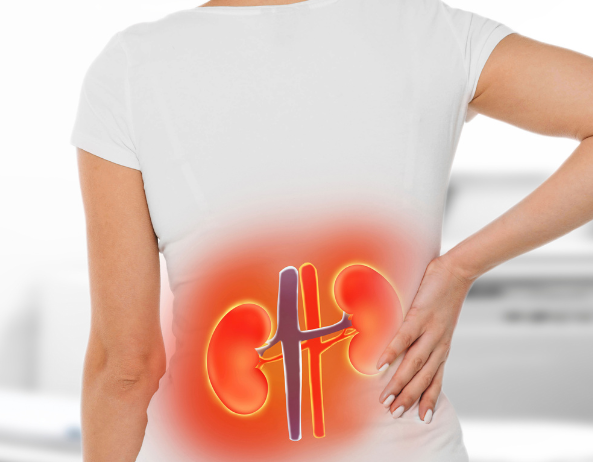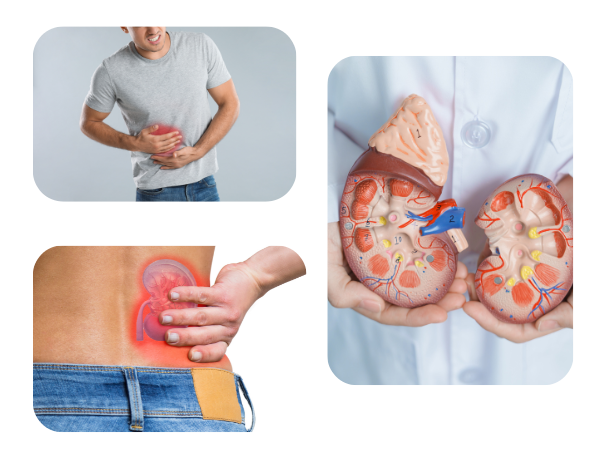Menu
- AyurVAID Pharmacy
Chronic Kidney Disease (CKD) involves a gradual decline in kidney function, impacting waste filtration, mineral balance, and hormone production. Acute Kidney Failure is sudden, while CKD develops over time. Diabetes and high blood pressure often cause CKD. Conventional treatment includes dialysis or transplant. CKD has five stages; stages 1 to 3 are early and don’t require dialysis. Ayurveda views CKD as a condition affecting the urinary system and offers treatments to restore kidney function and optimum detoxification. At AyurVAID, CKD Ayurveda treatment includes medicines, diet, and lifestyle management, for CKD patients, aiming to improve kidney health.


AyurVAID emphasizes classical Ayurveda protocols, addressing the root cause of conditions. After a thorough assessment, a customized treatment plan is crafted by expert Ayurveda doctors. Ayurveda CKD treatment aims to halt disease progression and enhance well-being. Our patient-centered care supports your journey to a happier, healthier life. Our physicians provide guidance on nutrition and lifestyle changes for better CKD management. The focus is on metabolism correction, kidney function restoration, pain relief, and improved quality of life, especially for dialysis patients. Patient-centricity is the core of AyurVAID’s approach.


Bengaluru – Domlur Bengaluru – Aster CMI, Hebbal Bengaluru – HRBR Layout Bengaluru – Sri Shankara, Basavangudi Bengaluru – Bannerghatta Road Bengaluru – ArekereDelhi – New DelhiKochi – Kadavanthara Uttarakhand-Kalmatia, AlmoraChennai – Greams Road Chennai – Vanagaram Chennai – Kotturpuram Hyderabad – Somajiguda
Ayurveda Parasurgery Autoimmune Disorders Blood Disorders Cardiology Dermatology Endocrinology Ear-Nose Throat-Mouth Elder-Care Gastrointestinal Gynaecology Integrative Oncology Infectious-Diseases Liver-Hepato-Biliary-Care Mental Health and De-addiction Male-Reproductive-Disorders Nephrology Neurological-Disorders Orthopaedic Disorders Ophthalmology Obstetrics-Integrative Preventive-Health-Wellbeing Pulmonology Pediatric-Development-Disorder Sleep-Disorders
Any use of this site constitutes your agreement to the Terms and Conditions, Privacy Policy and Cancellation and Refund Policy
©2025 Apollo AyurVAID Hospitals. All rights reserved.
Popular Searches: DiseasesTreatmentsDoctorsHospitalsWhole person careRefer a patientInsurance